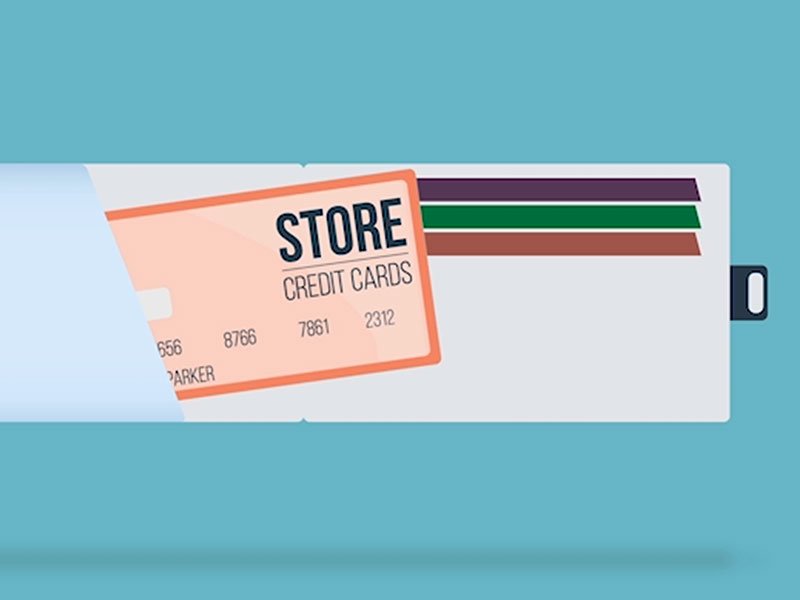
Beware of these 7 Unintended Ways You Can Lower Your Credit Score

Credit Scores have a simple cause and effect relationship: Take a specific financial action, and your score reflects it. But positive changes versus negative changes are not intuitive and inconsequential beneficial actions may lower your credit score. Discussions with credit experts have identified some minor mistakes lowering your credit score:
1. Waiting till Due Date for Repayment

The credit rating depends on amounts owed (credit utilization ratio) measuring the percentage of available credit actually used. Maintaining credit card balance under 30% of available credit prevents lowering of credit scores as credit card agencies report balances to credit reporting agencies when billing cycle closes and before payments are credited. Maintaining a big monthly balance, reflects high utilization ratio even if payment is made by due date. If planning heavy monthly card use, repay online to balance prior to closing of billing cycle, to ensure the credit report is stable. Ascertain by which date balances are reported to credit bureaus, from the credit card issuer.
2. Close Rarely used Credit Cards
Repay the credit card in full and close accounts, making sure you don’t have balances on other cards as closing a credit card account affects scores due to loss of available credit for that account while the outstanding debt is the same. Thus credit utilization ratio jumps up and credit score falls. Never leave card accounts open if not using them, as they cost money. With your credit score in great shape, and not needing credit, close accounts if tempted to indebtedness, after repaying outstanding balances on other cards, to maintain a low utilization rate.
3. Store Cards for Purchase Discounts

Every department store cashier after bill payment tries to interest you in the store’s credit card to receive discounts on purchases. Why not apply as the payment is done immediately? The discount entices but a store credit card invites a careful scrutiny of your credit-worthiness. A single enquiry may not impact credit score but several such cards over a couple of years may lower the score. New cards lower the average length of your credit history and your score as new credit accounts for 15 percent of your score. Opening new accounts frequently drags the credit score down. Retail cards carry high-interest rates and keeping cards unpaid, is costly.
4. Co-signing On A Loan
If your credit-worthiness is good, a family member or friend might request your help and co-sign a loan. Your strong credit history enables them to qualify if otherwise ineligible. Though tempting, you must think twice, even for a dear relative as co-signing a loan makes you responsible for repayment. If your co-signee fails to make a payment, your credit report is downgraded. Though prompt withyour repayments, a slip-up by the co-signer could downgrade your credit. Co-sign if the person is well-known and you can afford payment in case of failure and not otherwise.
5. Paying Off Loans

6. Check Your Report and Score
A credit score drop is often due to credit card errors or fraud. If unaware of problems, a small issue can turn into a major problem later. Regular checking of reports and scores for mistakes of omission or commission, is advised and this information is available free from various online sources. Secure annually a free copy of your credit report from three major credit bureaus. A credit card from a major bank may enable viewing your FICO credit score for free. Sites like Credit Karma provide your VantageScore to monitor your credit health. Checking credit scores does not impact the score.

7. Avoiding Credit Completely
The whole credit system looks like a game with all odds stacked against you. And you wouldn’t necessarily be wrong. But this game is played to win, so shunning credit totally does not help. Some financial gurus preach that people should avoid credit cards or loans and many millennials accept it.

Even college educated, professional individuals with more than $50,000 in low-interest savings accounts without a credit history fails to realize how expensive this advice is as they pay much more interest. Use credit to build a strong credit history by avoiding debt and using credit responsibly. Avoiding credit prevents achievement of basic financial goals and borrowing money at affordable rates when needed.
Worried about Your Credit Score?
Credit scores with small fluctuations are no cause for concern. The credit score is inconsequential as only the unique credit history matters. The golden rule is to focus on using credit responsibly by keeping low balances and repaying on time. Worrying about credit scores could lead to bad financial decisions.
More inFinancial Adviser
-
Will Governor Kugler Push for More Rate Cuts as Inflation Eases?
Federal Reserve Governor Kugler supports the central bank’s recent interest rate cut and plans to advocate for more reductions if inflation...
October 18, 2024 -
Four Seasons Hotel Milano Introduces Personal Styling With Vittoria de Carlo
When it comes to fashion, Milan is unmatched, blending elegance with avant-garde trends. To uncover the heart of Milan’s fashion scene,...
October 9, 2024 -
The Most Successful Female Celebrity Brands
In today’s world, many female celebrities are not just shining in the entertainment industry but also making significant strides as entrepreneurs....
October 1, 2024 -
How to Incorporate Sustainable Outdoor Activities Into Your Travel Adventures
Opting for sustainable outdoor activities may seem challenging at first, but it’s an essential choice for preserving our environment. While integrating...
September 26, 2024 -
Here’s How You Can Get Low Interest on Loans in 2024 & Beyond
How to get a low-interest loan? Well, it is a question many Americans seek an answer to. After all, interest rates...
September 20, 2024 -
How to Buy the Perfect Men’s Belt Online
Selecting the right belt size might seem straightforward, but it can be more nuanced than simply matching it to your pants...
September 12, 2024 -
Why Joey Lawrence and Samantha Cope Parted Ways After 2 Years of Marriage
In a surprising turn of events, Joey Lawrence’s divorce from Samantha Cope has become a topic of widespread discussion. The couple,...
September 2, 2024 -
Must-Visit Tourist Attractions in Brussels
Exploring Fairytale Cities (Bruges and Ghent) One of the best things to do in Brussels is to take a day trip...
August 28, 2024 -
What Is a Write Off and How Companies Use Them?
Understanding the Nuances of Write-Offs Understanding the nuances of what is a write-off is essential for businesses. While the basic concept...
August 23, 2024














You must be logged in to post a comment Login